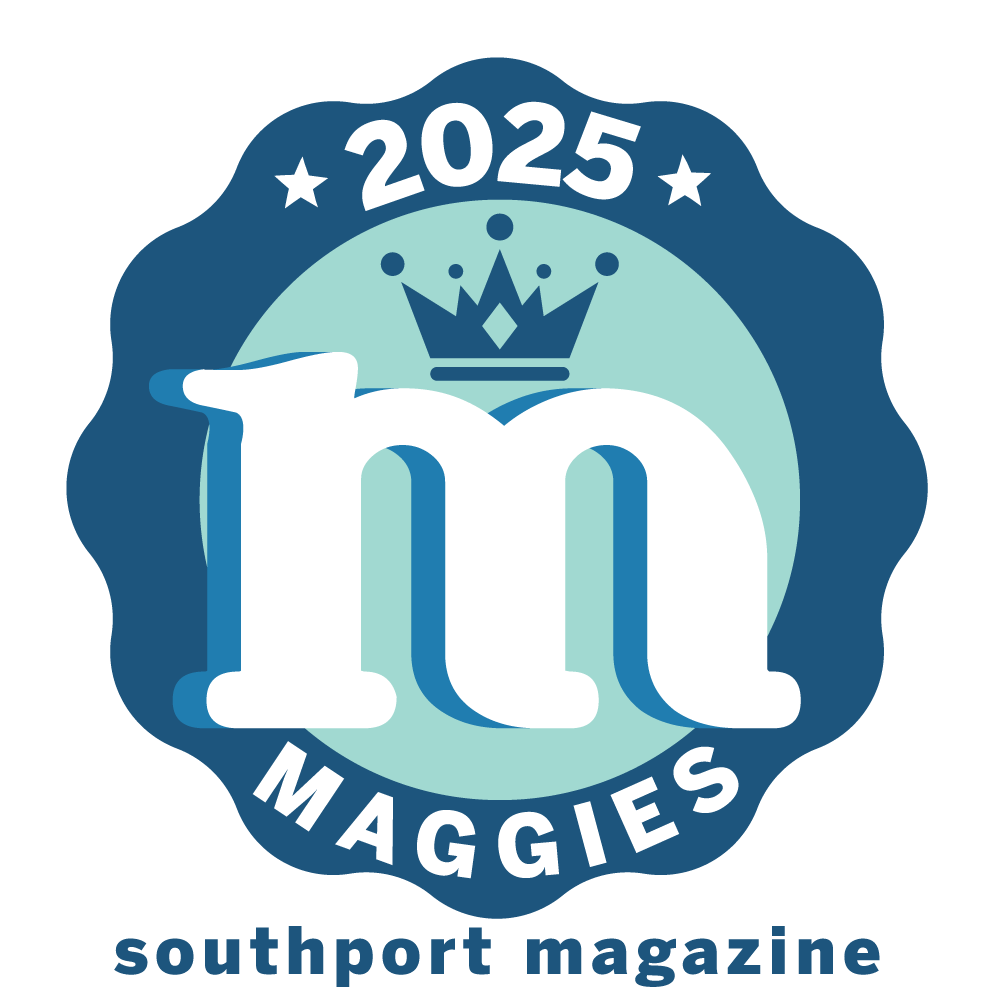Good Vibrations

What: The Beach Boys
When: Thursday, August 29th • 7:30 p.m.
Where: Odell Williamson Auditorium
50 College Rd. NE, Bolivia
Cost: $67-150
Info: (910) 755-7416
www.bccowa.com
While surf music originated on the West Coast, particularly in areas of Southern California in the early 1960s, its popularity has fluctuated since. Yet one band has kept pace throughout the genre’s evolution, and The Beach Boys’ distinct voice is still alive in surf culture.
As pioneers of the surfing sounds, The Beach Boys preceded modern surf rockers like Jack Johnson, The Phantom Surfers and Donavon Frankenreiter, an artist who frequently pops by for the waves and venues that the Wilmington area offers.Aside from taking to stage, radio and television hundreds of times, The Beach Boys were inducted into the Rock and Roll Hall of Fame in 1988. Rolling Stone voted “Good Vibrations” the “Number One Song of the Century,” and most recently, their 2012 album, “That’s Why God Made the Radio,” debuted at number three on the U.S. charts, their highest charting album in 37 years.
With their 50th anniversary behind them, more than two-dozen albums and countless live performances, The Beach Boys are stopping in Brunswick County as they “get around” the country for their 2013 tour. Brunswick Community College’s Odell Williamson Auditorium will host the band of six on Thursday, August 29th at 7:30 p.m.
With the ability to hold nearly 1,500 people and only 200 or so tickets left, Mike Sapp, director of Odell Williamson Auditorium says the show could very likely sell out before performance night.
“The Beach Boys have been hugely successful for many years and are the founders of and the epitome of the California beach sound,” Sapp describes. “Odell Williamson has been known for bringing quality entertainment to southeastern North Carolina for the past 20 years, and this show continues that tradition.”
But how does Odell Williamson, located far away from a bustling city on the remote college campus, snag these worldwide icons?
“This is another big show that we wouldn’t be able to get here if it wasn’t for Carlos Larraz [at National Artists Corporation],” Sapp divulges. “With the cost of bringing the artists here, stage and lighting expenses, and promotion, we wouldn’t be able to do it.”
National Artists Corporation (NAC) plans, coordinates and produces events across the United States. Other venues supported by NAC have included Carnegie Hall in New York, the National Mall in DC, and Planet Hollywood in Las Vegas.
NAC has promoted a few headlining acts at Odell Williamson, like Bryan Adams, Willie Nelson, and now The Beach Boys, whose classic light harmonies and cool tunes will no doubt be welcomed by the local beach and surf culture.
Though The Beach Boys were joined by retired founding member Brian Wilson on their tour last year, he will not appear onstage in 2013. Original member Mike Love, longtime member Bruce Johnston, Christian Love, Randell Kirsch, Tim Bonhomme, John Cowsill and Scott Totten will take the stage at Odell Williamson Auditorium later this month.
Tickets are $67 for general admission, plus a $2 service charge, or $150 for a VIP meet-and-greet with the band. They are on sale now at the box office, available by phone at (910) 755-7416, or online at www.bccowa.com.
Founding member Mike Love made time for a phone call with Southport Magazine during a stop in New York on Friday, July 26th, and said that he’s very happy to still be touring—and stopping at Odell Williamson Auditorium because it’s not far from the beach.
Southport Magazine (SM): What’s a major difference, if any, between playing a show in 1963 versus playing a show in 2013?
Mike Love (ML): Well, the good thing is that most of the hotels we stay in have restrooms in every room. (he laughs) The technology is much better. When we started out with our first couple of tours, we’d perform in ballrooms [and] places that sound systems were designed to announce wrestling matches. I mean, it was really basic, sound systems were minimal at best.
I can remember playing at one place where they had two microphones for us and we had four singers, but that wasn’t so bad. But the production quality wasn’t there. Nowadays you’ve got these theaters or amphitheaters that are designed with acoustics in mind. They’re not just for a basketball game or an arena like that, and they have actual acoustic technicians and designers.
It’s better these days for the listener than it ever was in the beginning, but the energy of rock and roll, and the newness of it all, and the excitement of it all, more than made up for the lack of audio quality.
SM: Did you ever feel like your music was threatened by the arrival of The Beatles and The Rolling Stones, and their sound?
ML: That’s a fair question, but I don’t think we felt threatened at all. Actually in 1966, our song “Good Vibrations” went to number one in Great Britain and the U.S. and a lot of places, [and] we were voted the number one group in Great Britain; number two was The Beatles and number three, The Stones.
There’s a lot to be admired in those groups and plenty of others. In fact, there was maybe a rivalry, but it wasn’t negative. There’s always competition and you always want to do well in radio, concert attendance, and all that stuff—that’s kind of standard with everyone. But I think we’re in darn good company. It’s been like a mutual admiration society for a lot of us.
There’s always underlying competition and there’s always underlying influence. I know we borrowed from Chuck Berry, The Everly Brothers, and the doo-wop groups back in the day. Those are all influences in our music, [but] I think the most distinguishing characteristics of The Beach Boys are the harmonies, along with some unique subject matter. Nobody had ever done a song about surfing, and car songs were few and far between, too.
SM: We’re a coastal community here and the surfing culture is really strong, and your music has been so ingrained in that culture. How much is surfing a part of your identity today?
ML: I think it’s inseparable. We’re identified with the beach and surfing and car songs … Cars have been huge—look at NASCAR; we were singing about it when it was the National Hot Rod Association stuff.
We actually recorded with a tape recorder and extension cord out on the sidewalk in front of the Wilson’s house in Southern California and tape-recorded them burning rubber down the street to get that on the “409” record. Not only do we love the surfer girls, the California girls, and the Barbara Ann’s and all that, but we also love the cars.
SM: Are you familiar with or do you follow musicians of the surf genre of today?
ML: I do. There are some great surfers, like Tom Curren used to be a champion surfer and he does music as well. Of course, there’s Jack Johnson, he’s a really great singer, and I dig his music a lot.
SM: You recently played with John Stamos again…
ML: Yeah, we did a little show with him at the Gibson Guitar headquarters in Beverly Hills. John called me and we did it with Don Felder [The Eagles], and we sang “Surfin’ Safari,” “Surfin’ USA” and “I Get Around” … and John loves to come out and play with us. He’s a big fan and he’s been coming out since he was Blackie on “General Hospital.” (laughs) And he had us on “Full House” maybe three or four times.
SM: What’s another collaboration you’ve done that you were particularly fond of?
ML: We’ve done tours with dozens of people who are iconic musically … but as far as recording, we did a song with Chicago, “Wishing You Were Here,” and we did a very successful tour with them three different times. And that was pretty cool, because it blended their style and our style, especially when we did our encore sets.
SM: Is there anyone you’d like to work with before you retire from your career?
ML: Well, I don’t think we’ll have a plan for retiring, that’s for sure. If you love music and you’re a musician, and you’ve had a hand in writing and creating those songs, recording them, performing them, and people still love to hear them … I don’t think there’s any plan to retire.
It’s a way of life and it’s always been since childhood. Our family was completely musical: My mom sang in a trio, so did her brothers. Music has been a way of life for our family; it just so happens that our hobby or our love for music became a profession. We’re very blessed to be able to do it and still have people enjoy what we do.












Leave a Reply